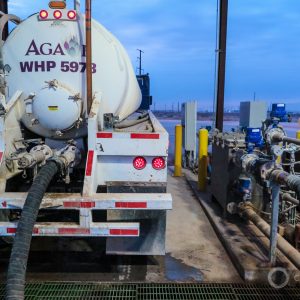The Stream, May 23, 2019: Three Dead After Flooding, Tornadoes Strike U.S. Southern Plains
The Global Rundown
Flooding and tornadoes hammer the U.S. Southern Plains. A new study warns that sea levels could rise up to two meters by the end of the century. England plans to ban the sale of waterway-polluting plastic straws, cotton buds, and drink stirrers. Brazil lifts restrictions on the Alunorte alumina plant, which has been operating at half capacity since a February 2018 wastewater spill. A year later, policeman in Tamil Nadu, India, have not been charged after shooting a dozen environmental protestors at a copper smelter.
“People have been intimidated and forced into silence by the police. This is not real peace, there has been no compromise.” –A W D Thilak, head of the Thoothukudi Bar Association, in reference to the aftermath of deadly shootings that occurred at an Indian copper smelter owned by Vedanta Ltd. A year ago, protestors gathered to decry air and water pollution caused by the smelter. Police abruptly opened fire and ultimately killed 13 protestors. So far, no charges or arrests have been made in relation to the shootings nor has the commission charged with investigating the incident provided any updates. Reuters
Latest WaterNews from Circle of Blue
‘It’s Raining Plastic’: Researchers Find Microscopic Fibers in Colorado Rain Samples — “We’re seeing plastics virtually everywhere we look,” U.S. Geological Survey researcher says.
Energy Companies Eye Big Oil and Gas Expansion in Wyoming — Will the fracking boom echo in America’s leading coal state?
By The Numbers
3 Death toll from deadly storms that swept across Texas, Oklahoma, Missouri, and Iowa earlier this week. The storms brought flooding and over 30 tornadoes to the region. Another round of storms is expected on Thursday. Reuters
5 billion Plastic straws used in the United Kingdom each year, along with 300 million plastic stirrers and nearly 2 billion cotton buds. In April 2020, England will ban the sale of these items, which are swamping UK waterways and endangering wildlife. The Guardian
Science, Studies, and Reports
A new international study suggests that global sea rise may top two meters (6.6 feet) by 2100 if global temperatures increase by 5 °C (9 °F). Authors of the report say that a two-meter rise would be the worst-case scenario, but warn that seaside cities and communities should prepare for such drastic change. Al Jazeera
On the Radar
In February 2018, Norsk Hydro’s Brazilian Alunorte alumina plant released untreated water during torrential rains. Since then, a court order has required the plant and associated smelter to operate at half capacity, but they have been cleared to resume full operations as of Tuesday. Reuters
Kayla Ritter is a recent graduate of Michigan State University, where she studied International Relations and Teaching English to Speakers of Other Languages. She is currently based in Manton, Michigan. Kayla enjoys running, writing, and traveling. Contact Kayla Ritter








Leave a Reply
Want to join the discussion?Feel free to contribute!